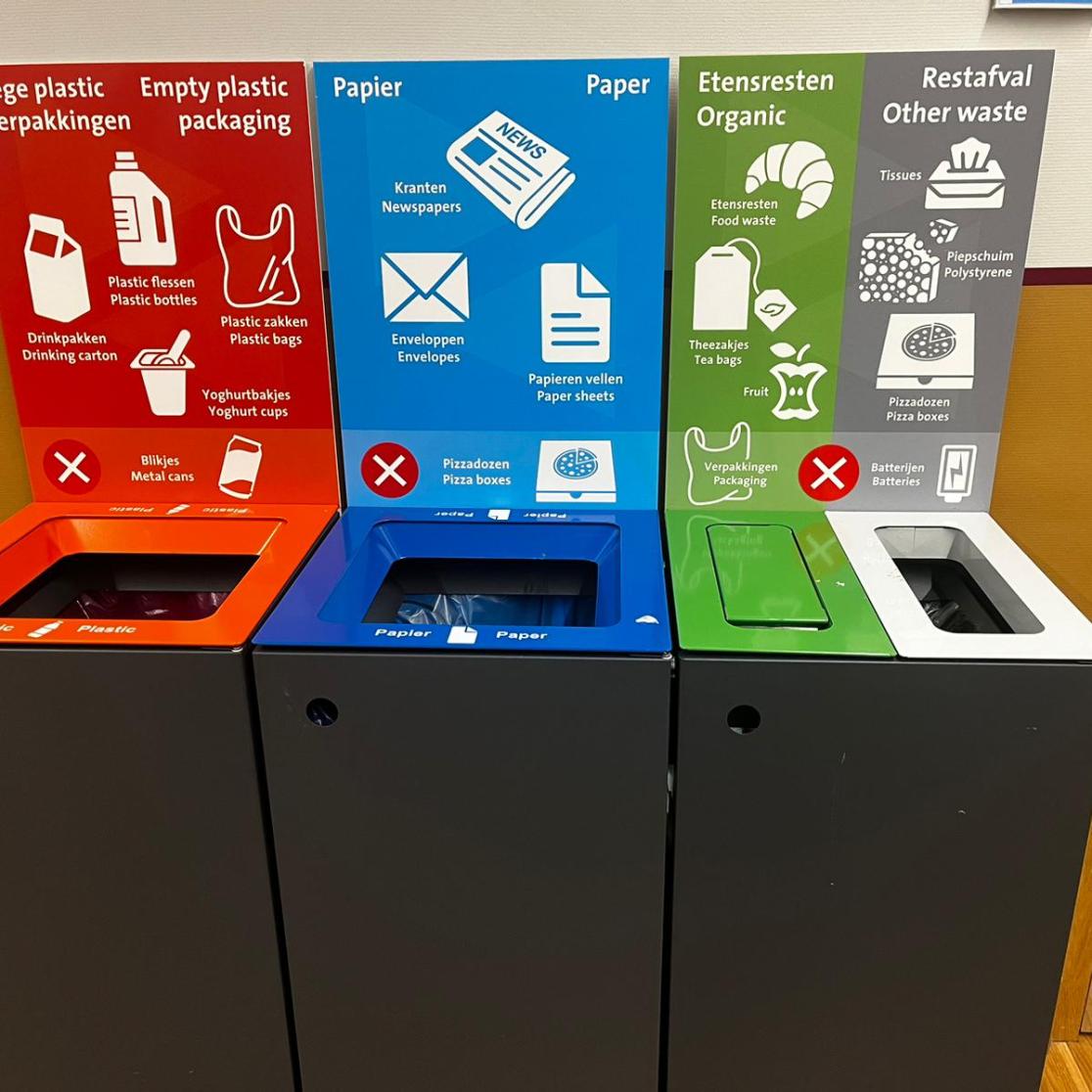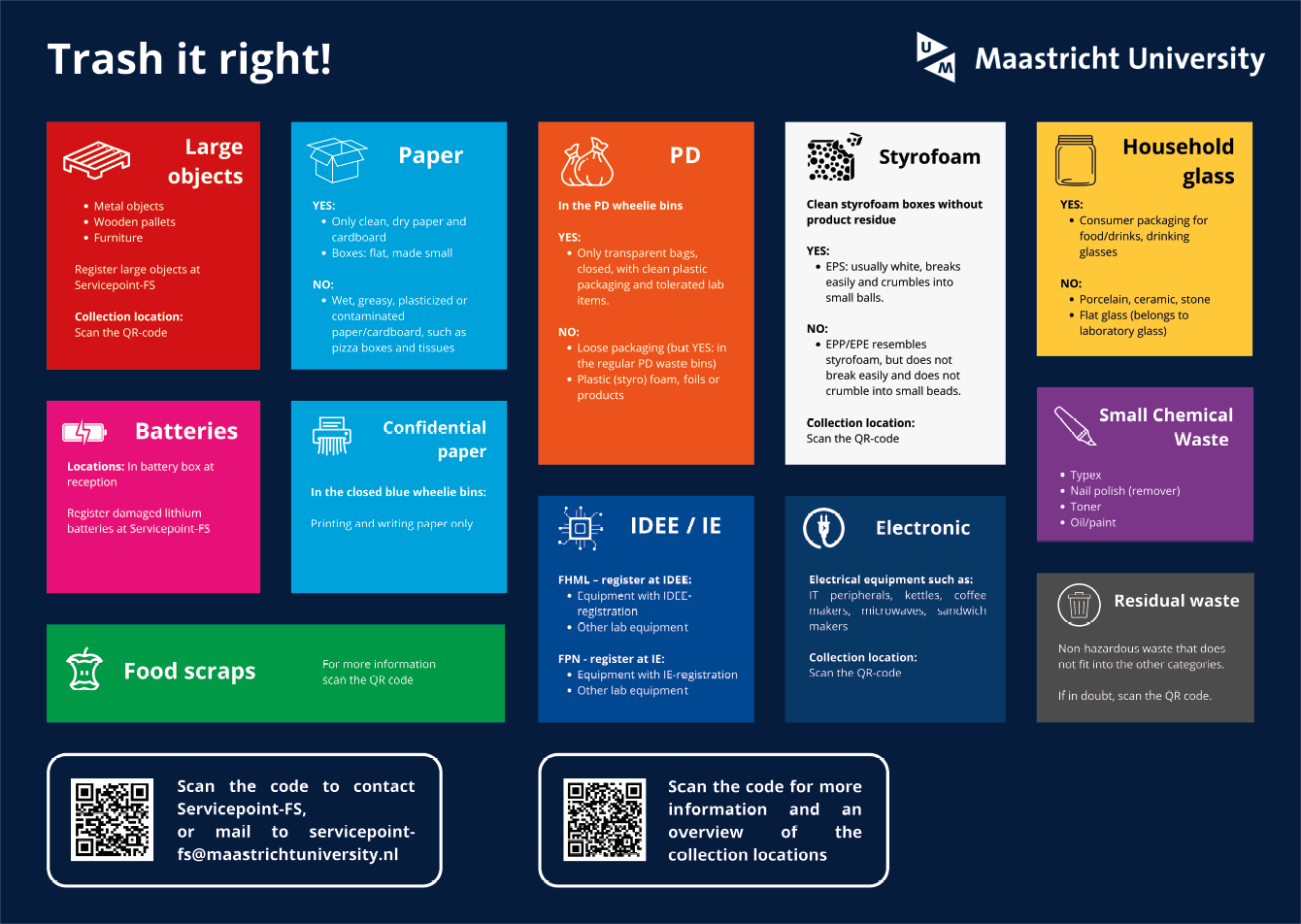Waste Management at Maastricht University: A Path Toward Sustainability
Maastricht University is taking bold steps toward a sustainable future by improving waste management practices. Through innovative strategies, enhanced waste separation, and the addition of new organic waste bins, the university aims to contribute significantly to the circular economy and reduce its carbon footprint.
How is waste managed at Maastricht University?
Maastricht University (UM) is committed to contributing to a circular economy by separating waste streams and reducing overall waste production. The university collaborates with an independent contractor who not only manages waste collection but also advises on waste management strategies. Together, they have set a goal: to recycle 55% of collected waste by 2026.
Waste separation begun in 2016, by separating plastic, drinking cartons and metal containers. In 2017, coffee grounds joined the list, and over the years, the system has evolved to further refine waste separation. By 2023, informational boards on waste bins were introduced to guide correct disposal practices. Since, 2023 metal is no longer allowed in the orange bins, however, for drinking cans a deposit is paid: one can either return it to the shop or donate it in donation containers (found at some Eurest outlelts).
Students and staff are now familiar with separate bins for paper, plastic, and other waste. This year, a significant addition was made: organic waste bins.

Why the new organic waste bins?
In 2023, a pilot project for organic waste bins was launched at FASoS. The results were promising: organic waste recycling increased to 1.3% for the year, and during the pilot period (September–December), it rose to 2.3%, with 148 kilograms of organic waste collected.
The decision to expand organic waste bins was driven by an analysis showing that roughly 10% of residual waste consisted of organic material, such as food scraps.
With these new bins, organic waste will no longer be incinerated. Instead, it will undergo fermentation to produce biogas. Items like vegetables, fruits, food scraps, fish, bread, eggshells, and tea bags can all be disposed of in these bins. This simple change will help reduce CO2 emissions, advance the circular economy, and enhance UM's sustainability efforts.
What are the future plans and visions for waste management at the university?
Facility Services aim to increase awareness about waste separation options and expand the system to more faculties. The Universiteitssingel (UNS) buildings, for example, generate large amounts of waste across various categories due to their numerous floors and laboratories. To address this, waste-separation manuals (https://www.maastrichtuniversity.nl/afvalwijzerUNS) and informational posters have been introduced, and the Facility Services team is working to roll out similar resources across campus.
UM’s waste management efforts align with the "10 Rs of Circularity “. While recycling is a vital starting point, the university hopes to take even higher steps in the long run by implementing practices that focus on other important steps, like further reuse and waste reduction.
Have ideas or sustainable practices to share from your daily life? We invite you to contribute! Reach out to: sustainability@maastrichtuniversity.nl.
